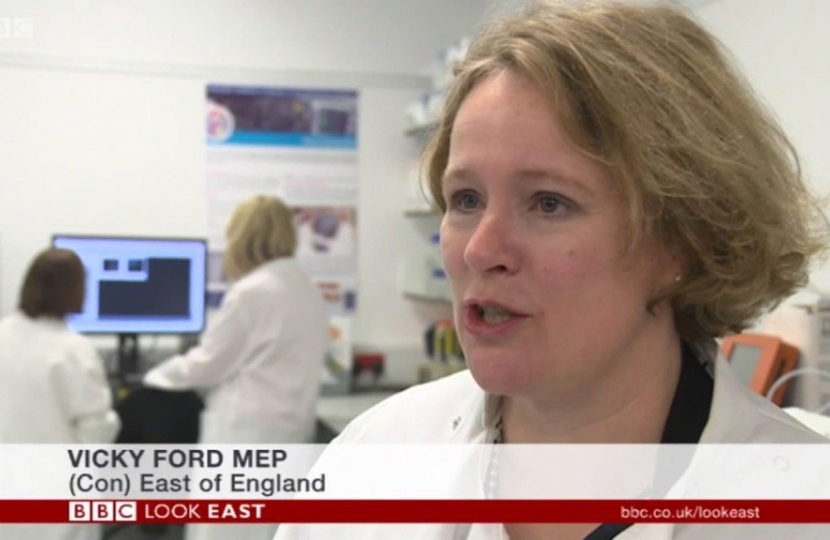
Scientists from across the UK have successfully secured nearly one in five of the prestigious grants from the European Research Council in the latest funding round announced last week. This comes as some good news for British researchers who have been increasingly concerned that they are finding it harder to raise funds post the EU referendum.
Vicky Ford was the UK's lead MEP negotiator on the EU's £70 billion Horizon 2020 fund for research. She explained that whilst this was a positive sign the situation needs to be watched very carefully. She pointed that in the past applicants from the UK have succeeded in winning more ERC grants than any other country but in this latest round the UK had dropped to number two, with 59 grant winners behind Germany´s 61.
The European Research Council grants support to individual researchers in frontier research, especially for pioneering ideas in new and emerging fields. The UK has championed the ERC since it was established less than 10 years ago. Winning an ERC grant is now considered a global badge of excellence. The latest awards are "starter grants" for early-career researchers and the winners will be able to use the funds to build their own teams of post-docs and PhD students.
Mrs Ford said, "These grants are extremely valuable to British universities and to innovation in the UK. For so long as we remain a member of the EU our researchers are entitled to apply and should not be treated like second-class citizens with regards to continued access. It is important that we keep a close eye on this. If there is a significant drop off in grants to the UK we will need to treat this very seriously at the highest level."
Six grants were awarded to individuals at Cambridge University in a wide array of subjects from number theory to neuroscience which Mrs Ford said was "excellent news, reflecting the world class expertise that we are so privileged to have in Cambridge."
In Bedfordshire, a grant was awarded to Ewan McAdam at Cranfield University for a research project on 'Sustainable Chemical Alternatives for Re-use in the Circular Economy'. Mrs Ford said "Cranfield has a unique reputation for turning academic study into industrial success and its excellent news that they will be involved in this vital area of making production more sustainable."
At the John Innes centre in Norfolk, a grant was awarded to Diane Saunders for 'Decoding the Molecular Mechanisms Driving Host Adaptation of Yellow Rust on Cereal Crops and Grasses'. Mrs Ford explained "John Innes is considered one of the very top institutions in the world for plant sciences. Finding new ways to combat plant disease in a changing climate is key for the future of food and farming. "
Reflecting on the future of research funding post Brexit Mrs Ford said, "If we want to continue being world leaders in research we need to make sure that our researchers can access world class grants and work easily with experts in other countries. We should consider either negotiating to continue participating in the European Research Council or establish a parallel complementary system."




